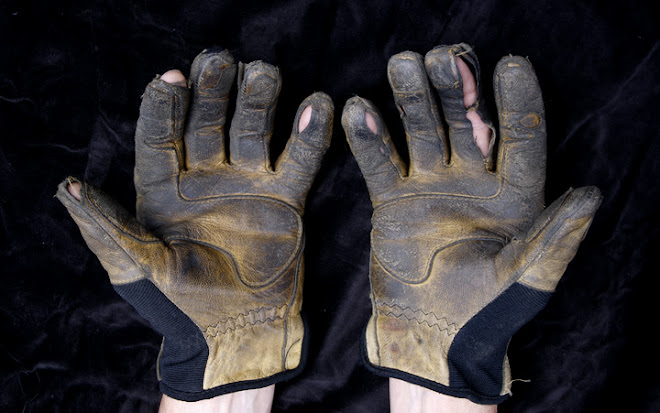The ax man cometh…
After all the hard, bruising work of getting a television show up and running, the production has generally settled into a solid groove by November. With eight to ten shows in the can, the crew has bonded, the kinks that inevitably crop up early on have been smoothed out, and the day-to-day operations are rolling along like a well-oiled machine. But just as it starts to feel like a real show, when -- if there was any justice in this cruel, cruel world -- everybody should be able to relax just a bit, a dark shadow falls over everyone from the executive producers all the way down to the Production Assistants.
Turkeys aren’t the only ones with good reason to worry as Thanksgiving approaches, because this is the time of year shows get cancelled.
It's brutal.
In essence, what they got from the network was a "Merry Christmas and fuck you very much" worthy of Ebenezer Scrooge himself.
But while most shows end with a resigned sigh, at least this crew got to exit with a bang. From what I hear, the cast went all out that night doing their final show in front of the live audience, cutting loose with some very blue, decidedly unscripted, and extremely funny ad-libs that had everyone on that sound stage howling -- a show the audience will never forget and the viewing public will never see. I'm sure the experience was cathartic for everyone involved and helped ease the sting at the moment, but as good as that must have felt, they still had to wake up the next morning knowing their show was dead and gone.
I know some of that crew -- they're good people who are very good at their jobs -- and I hate to see this happen. All is not all doom and gloom, however, and if the Gods of Hollywood taketh, so do they givith. Many of the new shows did manage to land their back-nine pick-up, including this one -- which was welcome news for some good friends of mine.***
I know some of that crew -- they're good people who are very good at their jobs -- and I hate to see this happen. All is not all doom and gloom, however, and if the Gods of Hollywood taketh, so do they givith. Many of the new shows did manage to land their back-nine pick-up, including this one -- which was welcome news for some good friends of mine.***
My show is in no danger of getting the ax. With only another seven or eight episodes needed to carry us over the finish line into syndication, there’s no way the cable network (tightwad, low-rent, cheap-ass mother-f******s that they are) is going to kill off the golden goose. Besides, they don’t have to. Having fulfilled its purpose in finally achieving syndication, our show will almost certainly expire of natural causes at the end of this season.
After that, who knows? I still need to catch one more decent wave (or several smaller ones) to surf my way out of Hollywood onto the sunny beach of retirement. But juicers my age aren’t exactly in high demand -- or any demand, actually -- so there’s no guarantee of another wave rolling my way.
Whatever. I'll drive off that bridge when I come to it.
Television remains an unstable business in the best of times, and for those of us who toil deep in the belly of the beast, life is akin to that of our hunter-gatherer ancestors, constantly hunting for the nextwoolly mammoth to kill and eat paying gig. After several lean years wandering through the day-playing wilderness, I was fortunate to get a cable show that kept chugging along over four seasons despite less-than-stellar numbers -- but that’s one of the few advantages working in cable has over the big-bucks, high-pressure world of broadcast television. Our viewer numbers would have gotten us the hook a week into Season One on a broadcast network, but cable shows don’t need eight million pairs of eyeballs per week just to survive. They can get by on less -- a lot less -- so although working lower down the food chain of television has some serious drawbacks, it isn’t all bad.
Whatever. I'll drive off that bridge when I come to it.
Television remains an unstable business in the best of times, and for those of us who toil deep in the belly of the beast, life is akin to that of our hunter-gatherer ancestors, constantly hunting for the next
As it turns out, the sharp blade of the Hollywood ax cuts both ways -- and during this Thanksgiving week, that’s what I’m thankful for.
** Here's a little story about how that works…
*** Congratulations, Bryan, Kevin and the boyz -- you earned it!






